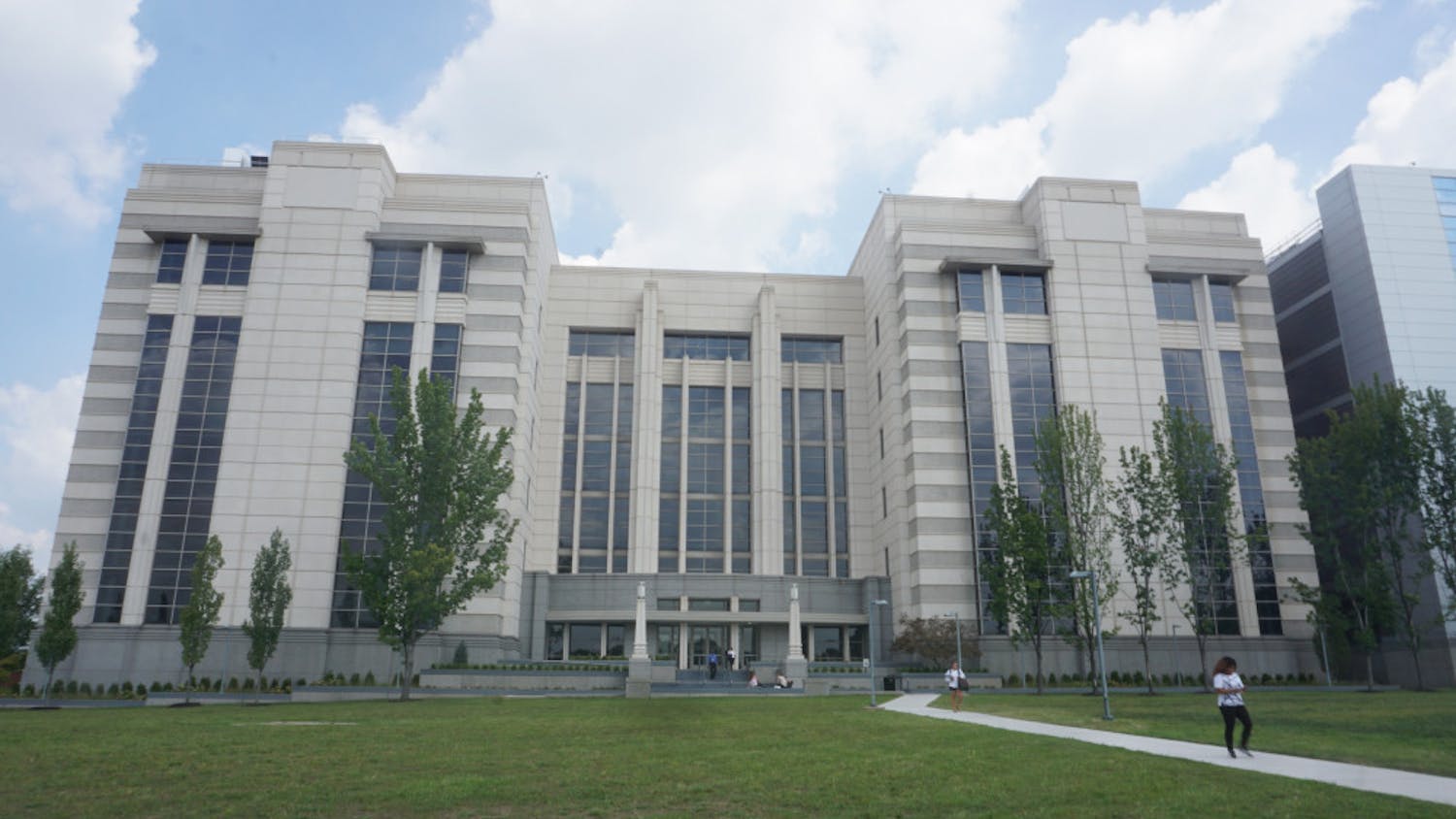The requirement that students take a minimum of two courses in each of five core proficiencies, starting with the Class of 2017, is on hold.
As of now students are required to complete ten courses in any of the categories: reading and writing, critical thinking, oral communication, information fluency and numeracy.
There are not enough total courses to roll out this next phase, according to Dr. Mary Balkun, who oversees the proficiency requirement in the University's Core Advisory Board.
The delay in implementing phase two is symptomatic of problems with the University core at large. A semester-long investigation by a team of student reporters found a history of controversy, conflict and confusion regarding oversight of the University core.
As a result there are a lack of infused courses, delays in updating Banner and poor faculty response to the creation of infused courses. The bottom line is, students are struggling to understand the requirements and complete their proficiencies.
The impetus for the core was a request by then President Msgr. Robert Sheeran in 2001 to institute a core curriculum that would create a "signature Seton Hall experience." It took three years to determine what a University core would look like.
Many departments were initially reluctant to back the implementation of University- wide required courses.
Once the core was implemented in 2004, the people who were originally backing the core had more power than those who wanted to police it, according to Dr. Thomas Marlowe.
There was a "fundamental conflict" between the supporters of the core, who had a lot of power in the Faculty Senate, and the members of the APC, who were seen as "slowing down" the process, according to Marlowe.
Marlowe, program adviser for computer science, was chair of the APC from 2004 until 2009. Until November 2005 there was one committee referred to as the APCCC, or the Academic Policy and Core Curriculum Committee. There was a vote by the Faculty Senate to take away any oversight the APC had over the core curriculum.
Beginning around 2007, the Office of the Provost changed hands several times, which caused some issues, Marlowe said.
"I think we had some problems in the upper administration for a long time. It was very difficult," he said. Marlowe added that he thought the people who were supporting the core and the split of the CCC from the start "always thought their process was open and honest."
The root of disagreement from the creation of the core is reflected in today's debates as to the oversight of the curriculum.
As a result, there is a lack of one central governing entity over the Core Curriculum.
The Faculty Senate currently has a Core Curriculum Committee, led by Dr. Jon Radwan of the department of communication and the arts. There is also a Senate Academic Policy Committee, which oversees program changes. Radwan and the CCC are working to create official bylaws. The official charge of the CCC is to "make recommendations to the Senate on matters relating to the design, revision, implementation and administration of the core," according to Radwan.
At the April Faculty Senate meeting, a measure to disband the CCC was narrowly defeated. The vote happened because of a request made to the Core Advisory Board from the CCC for a liaison to have an understanding of reports from each group. The CAB turned down the idea, according to Balkun and Radwan, when the group did not get control of who the representative would be.
About the division between the CCC and the CAB, Balkun said "There is not something besides good will at the base of it ... you can't count on good will all the time. The players are going to change."
"The structure is not ideal for various reasons," she added.
This struggle is indicative of a lack of clear lines of responsibility.
The Core Advisory Board is not a part of the senate. It functions as a separate unit, comprised of one member who represents each aspect of the core: such as proficiencies, University Life, Journey of Transformation, English 1202 and 1202, Core II and Engaging the World. The CAB is a direct product of the Provost's office.
The director of the CAB is Dr. Anthony Sciglitano, a former faculty senator. According to Balkun, this is an administrator position, as Sciglitano sat in on Deans' meetings. Sciglitano agreed to review interview questions emailed to him but never responded to those questions.
The CCC is still a functioning part of the University, only looking at the University core, and plans to meet with a representative from each element of the core in the coming months, according to Radwan.
A third body in the University that has oversight of the core is the yet-to-be-formed Provost Liberal Arts Task Force, according to Radwan. This task force's goal is to "add clarity and focus to the institutional understanding of the core requirements."
Radwan said his reaction was that charge sounded similar to what the CCC is involved in and said he is going to wait until the task force is created to figure out where responsibilities lie.
This confusion in the organizational structure has led to a lack of communication to faculty and students about updated requirements, including the proficiencies.
The proficiency approval process is primarily overseen by Balkun, who must review and approve each proficiency course, and notify the Registrar. The process involves keeping the registrar information updated so that proficiency infused courses display in Banner for students to check. Each individual course's proficiency must be updated in Banner by hand.
Balkun said that part of the difficulty is keeping all faculty informed about infused courses, and therefore more infused courses are required.
The University encourages and sometimes pays professors to participate in workshops to learn about course infusion.
She also admitted that when she is arranging sections of major courses, such as intro to biology or English 1201, making a note to tell the Registrar about proficiency infusion is not the first priority, al- though it does get done.
Keeping students informed is the final step in the process.
According to Dean Robin Cunningham, freshmen are told about proficiency requirements through University Life.
When students are confused when trying to meet requirements, they often end up contacting Sciglitano, who is the only one with the authority to waive or substitute proficiency requirements.
According to Balkun, the University will waive requirements for students who have tried but had trouble fulfilling the core. Courses may also count if the student took a course before it was approved as a "proficiency" course.
Balkun said that the University is working to improve both the approval process and communication to students.
"The student panic drives this," Balkun said. When students worry and bring their concerns to the faculty, she said, the faculty then realize that something has "got to happen."
The latest wrinkle, however, is that the University lacks an assessment plan for the proficiency requirement.
Currently, there is no way to assess the effect of the proficiencies on student progress. "That's the problem," Balkun said.
During last month's Middle State accreditation review, one of the recommendations was about core proficiency assessment, according to Balkun.
According to Balkun, several ideas such as progress portfolios are being considered to benchmark the effectiveness of the core proficiencies.
"That's the final piece of the puzzle," Balkun said. "How do we assess whether this is actually having an impact on student learning?"
Madelyn Abdalla, Sean Quinn and Jenna Romaine contributed to this report.
Charlotte Lewis can be reached at charlotte.lewis@student.shu.edu.





